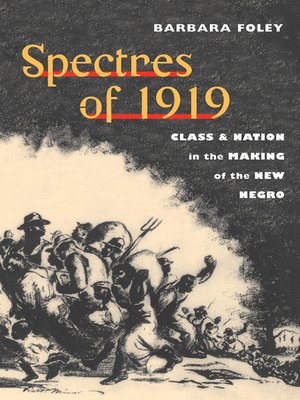
Sign up to save your library
With an OverDrive account, you can save your favorite libraries for at-a-glance information about availability. Find out more about OverDrive accounts.
Find this title in Libby, the library reading app by OverDrive.



Search for a digital library with this title
Title found at these libraries:
| Loading... |
A look at the violent "Red Summer of 1919" and its intersection with the highly politicized New Negro movement and the Harlem Renaissance
With the New Negro movement and the Harlem Renaissance, the 1920s was a landmark decade in African American political and cultural history, characterized by an upsurge in racial awareness and artistic creativity. In Spectres of 1919 Barbara Foley traces the origins of this revolutionary era to the turbulent year 1919, identifying the events and trends in American society that spurred the black community to action and examining the forms that action took as it evolved.
Unlike prior studies of the Harlem Renaissance, which see 1919 as significant mostly because of the geographic migrations of blacks to the North, Spectres of 1919 looks at that year as the political crucible from which the radicalism of the 1920s emerged. Foley draws from a wealth of primary sources, taking a bold new approach to the origins of African American radicalism and adding nuance and complexity to the understanding of a fascinating and vibrant era.
| Cover Title Page Contents Preface 1. The New Negro and the Left 2. Nation, Class, and the Limits of the Left 3. The Rhetoric of Racist Antiradicalism 4. Metonymic Nationalism, Culture Wars, and the Politics of Counterdiscourse 5. From the New Negro to The New Negro Notes Index | Choice Outstanding Academic Title, 2005. — Choice Outstanding Academic Title, 2005.|Barbara Foley is a professor of English at Rutgers University and has written extensively on twentieth-century literary radicalism.






